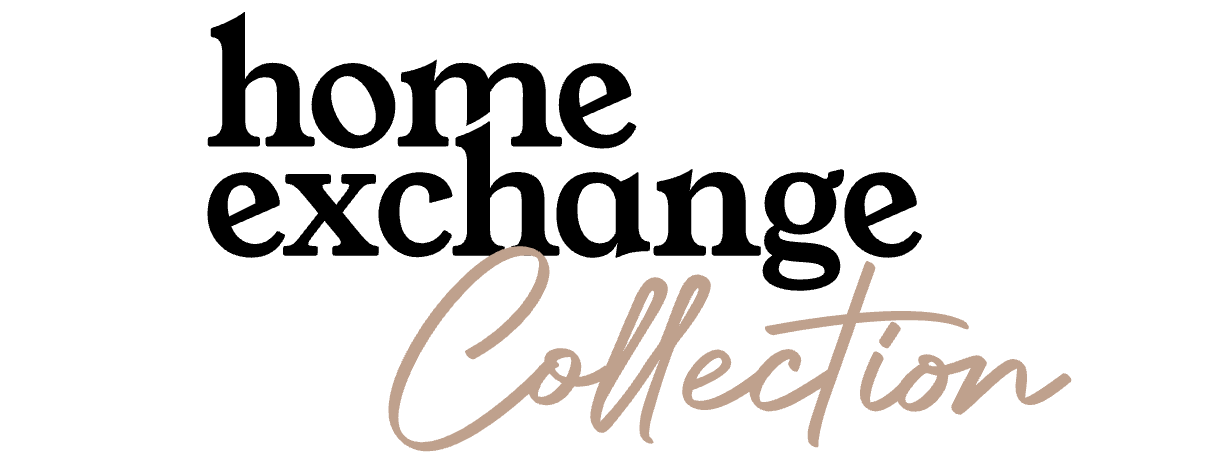9 Best Smart Home Upgrades for Luxury Homes (Must-Know Tips)
Redefine what home feels like. See how intelligent climate control, integrated security, and smart appliances can transform your luxury home into a seamless sanctuary of comfort.
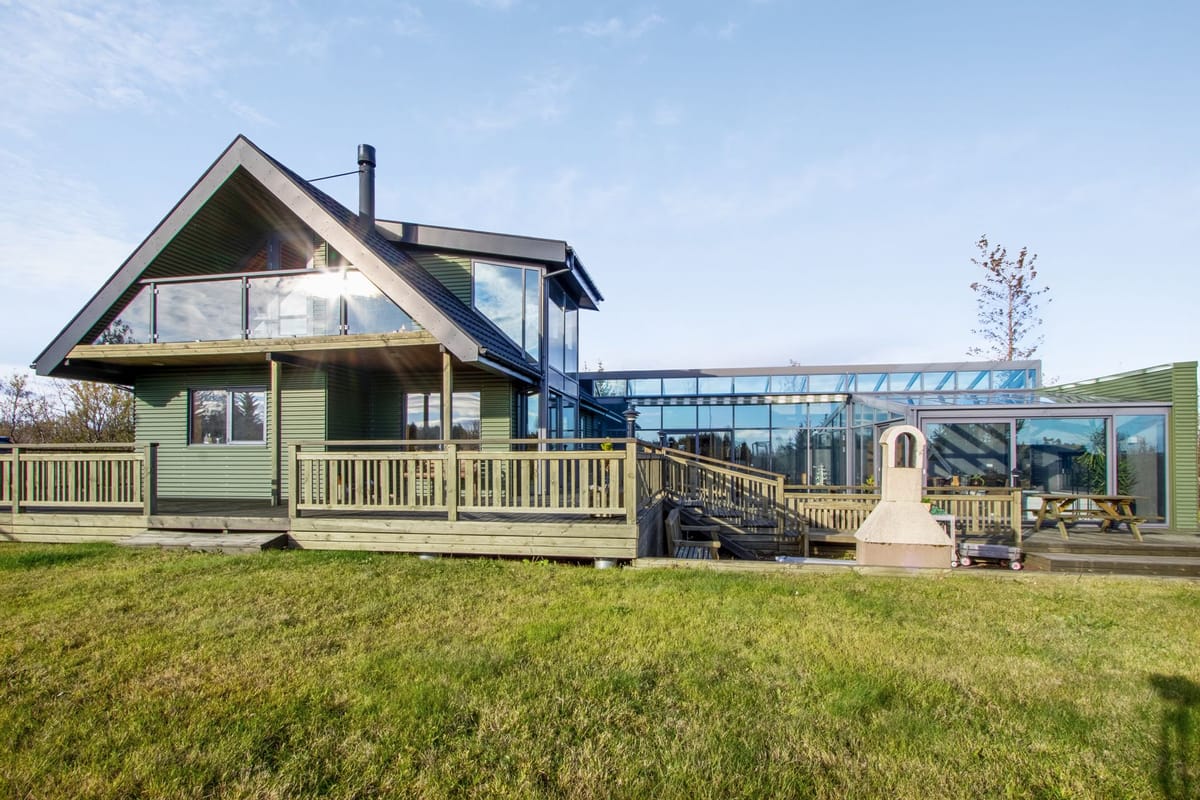
Luxury has traditionally been associated with grand mansions with opulent finishes, intricate artisan details, and breathtaking locations. However, we are in a new era. Luxury has taken on a new form that seamlessly blends elegance with cutting-edge technology.
In modern luxury real estate, integrating smart home features into your home has become the defining factor that separates luxury from ultra-luxury.
These innovations, such as automated lighting systems, advanced security, home climate control, and smart home technology, not only enhance comfort and convenience but also make your home more attractive for home exchange.
Are you a homeowner looking to upgrade your residence, a real estate investor aiming to increase property value, or someone interested in the latest home automation trends? Knowing which smart home upgrades truly make a difference is key.
In this post, we’ll explore the 9 best smart home upgrades that can transform your home into a haven of sophistication and innovation.
1. Smart lighting systems
Since the arrival of Artificial Intelligence (AI), you undoubtedly have heard of smart technology. One advancement in smart tech is smart lighting.
Smart lighting is an innovative technology that automatically allows you to control your lighting using specific lighting systems.
With features like motion sensors, dimming presets, and circadian lighting, you can create customizable scenes that elevate your home, automate schedules, and voice control specific lighting functions.
For example, sensor technology can trigger light to switch on when it detects the presence of people in a dark room.
If you want, It can be used throughout your home.
2. Smart blinds
Have you ever noticed, maybe in an advert or a movie, where a character walks towards the window, and the blinds automatically open to a breathtaking view of the city's night sky?
If you haven’t, Iron Man's (2008)opening scene offers an idea of how you can integrate smart tech into your windows. The scene starts with J.A.R.V.I.S. giving a wake-up call by changing the windows to let in natural light.
Similarly, smart blinds automatically detect and filter the amount of daylight that enters your home. They can be motorized to adjust automatically based on sunlight and time of day and can even be linked to your smart lights.
3. Security system
Studies suggest that a home without a security system is 300% more likely to experience a break-in, so it may be safe to say that a house with one is 300% less likely to experience a break-in.
Hence, an essential upgrade you should consider for your home is installing top-tier security systems, which can help eliminate threats and provide an extra layer of safety for your luxury home.
This is especially critical if you work mostly away from home, go on trips, or have a vacation home.
If you often go on trips, instead of leaving your house empty, an alternative or an added layer of security is to leverage the HomeExchange Collection platform.
This secure and convenient platform lets you swap your luxury home with other homeowners who own properties worth an average of $2.5 M.
You can also install smart security devices like 4K cameras and biometric access control, so you can remotely monitor your home or family members from anywhere and control who has access to it.
However, if you have guests in your home through HomeExchange, you must follow HomeExchange’s policy on surveillance cameras to ensure compliance with privacy guidelines.
4. Automated climate control
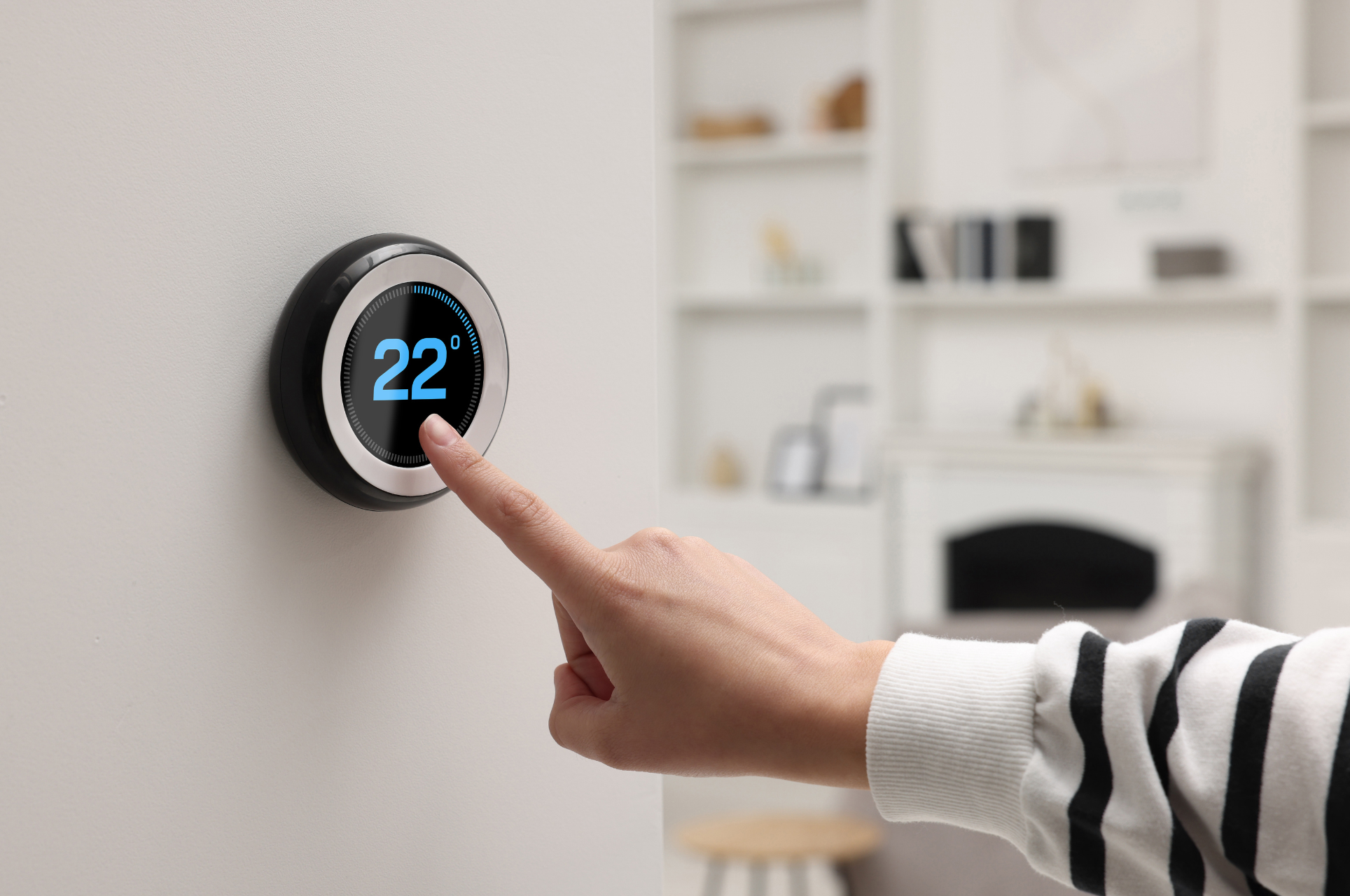
What is a luxury home without comfort? Upgrade your home with smart thermostats like Nest and Ecobee, which track and adjust your home cooling and heating system using your smartphone app or voice.
These devices are convenient for regulating the temperature of a large home with multiple floors. Most models allow you to place remote sensors in different rooms to maintain a uniform temperature throughout the house. You can set a different temperature for every room and set specific temperature schedules for each day of the week.
Many high-end models come with machine-learning technology that learns your habits and adjusts temperatures to your preferences, giving optimal comfort and making your home eco-friendly and customized.
You may also like: 8 tips from our community to make your home more eco-friendly.
5. Smart outlets
One of the cheapest ways to upgrade your home is to install smart plugs, which are Wi-Fi-enabled outlets that allow you to remotely control almost any electrical device. These plugs automate your existing appliances. Besides convenience, they also reduce energy consumption by 500-1000 Kilowatts per year.
6. Smart kitchen and appliances
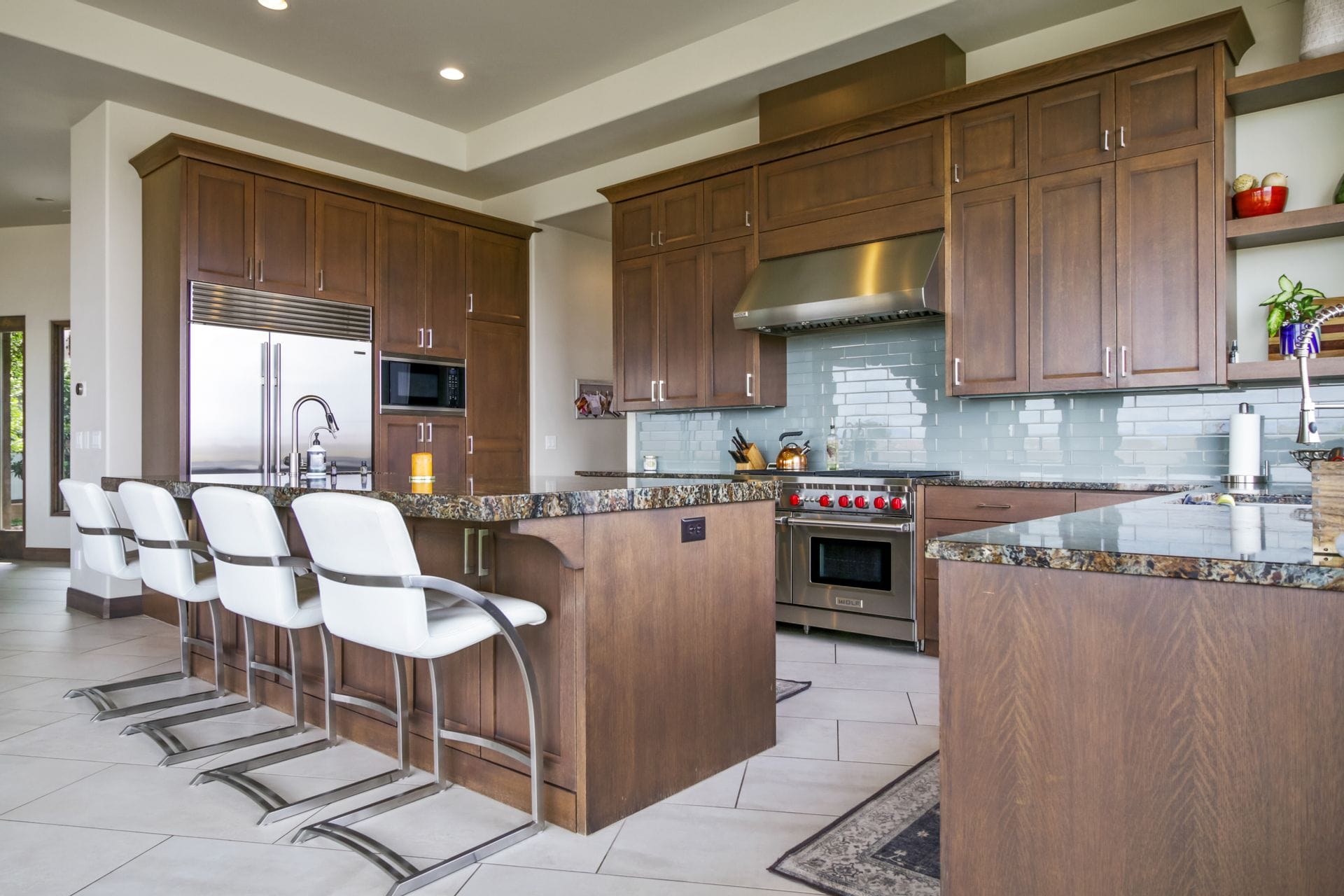
What is a smart house without a smart kitchen feature?
Most homeowners spend a lot of time in the kitchen, so it makes sense to have intelligent appliances where they are most needed.
Voice-activated ovens and refrigerators with AI-powered inventory tracking are some of the smart kitchen techs that help to simplify meal prep and elevate convenience.
Furthermore, a smart kitchen upgrades your home, elevates convenience, and makes it more appealing in luxury home exchange communities like HomeExchange Collection.
Homeowners with smart kitchens significantly enhance their homes' desirability in the exchange community, especially among fellow members who appreciate the ease and sophistication of tech-integrated cooking spaces while traveling.
Beyond smart appliances, HomeExchange Collection members enjoy exclusive perks, such as access to private chefs and curated culinary experiences.
7. Home theater and entertainment systems
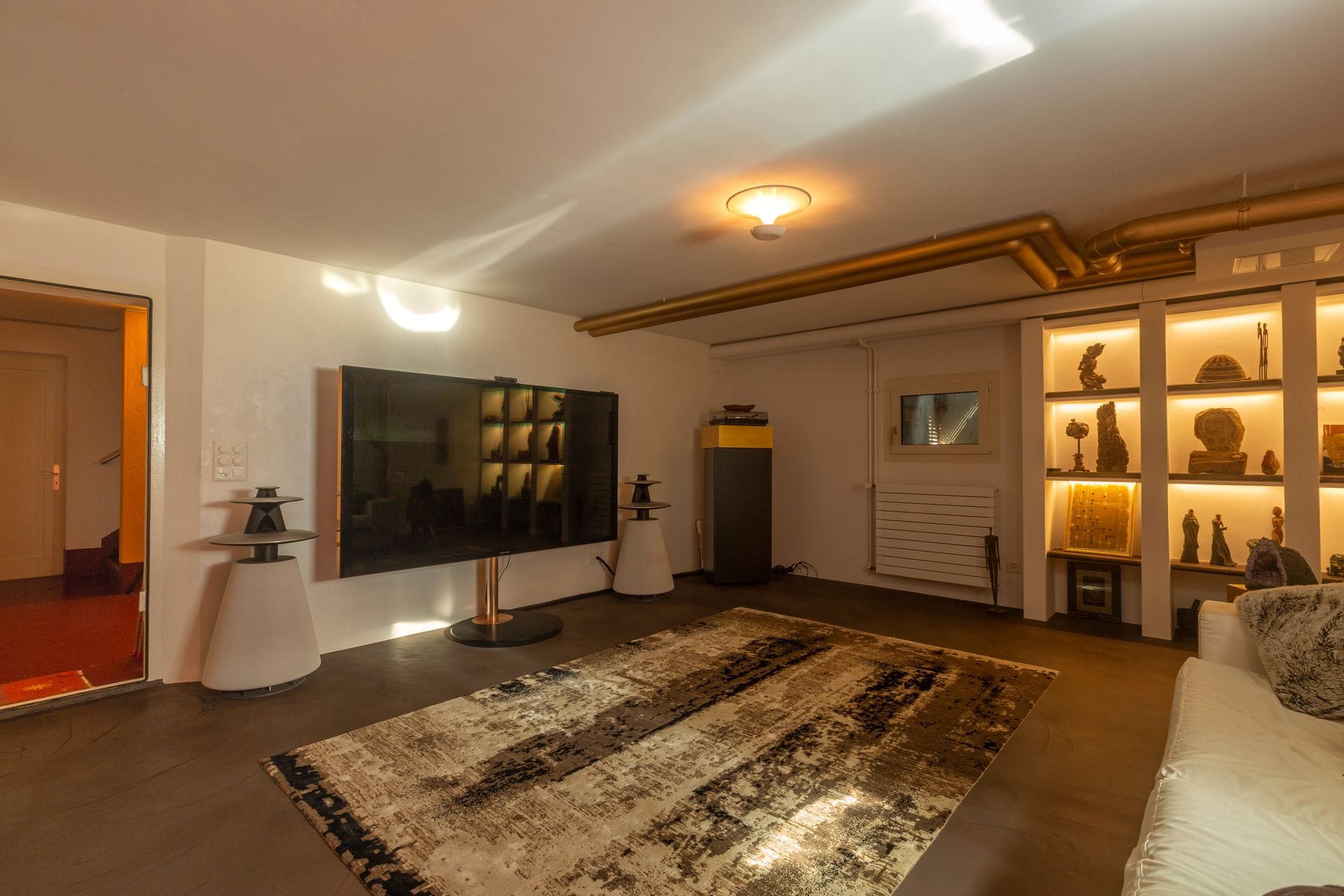
A state-of-the-art home theater and entertainment system is a must-have smart tech upgrade for those who appreciate the better things.
With cutting-edge audio-visual technologies, like the Sony 4K projector for breathtaking image quality, immersive surround sound systems, and smart streaming devices like the Apple TV 4K, you can recreate a cinematic experience and enhance the entertainment experience for families and friends in the comfort of your own home.
8. Voice-controlled home assistants
These are AI-driven home assistants like Alexa, Google Assistant, and Apple HomeKit. They function as command centers for multiple smart devices, allowing users to fully control all their smart appliances through voice commands.
9. Luxury smart bathrooms
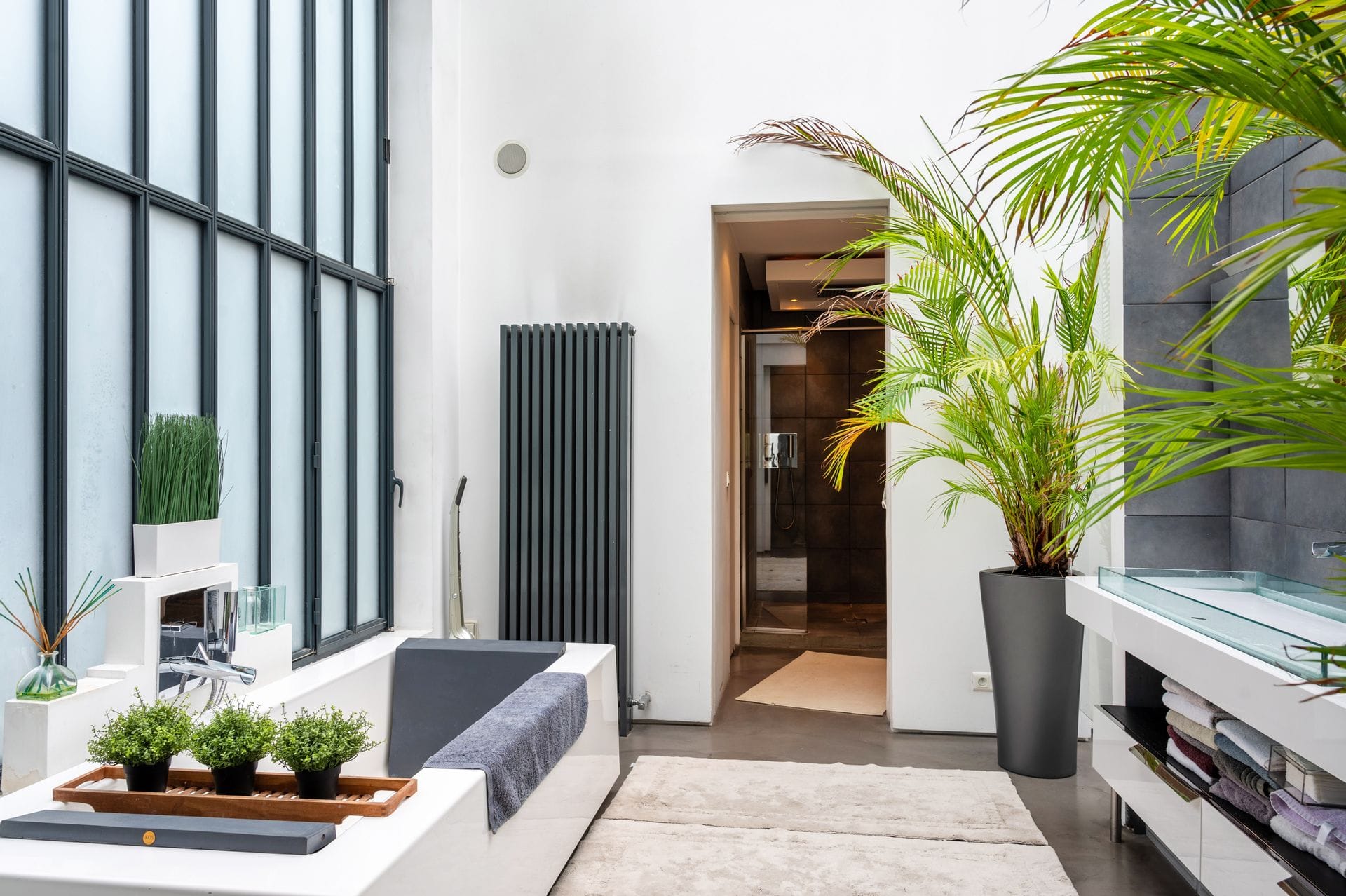
Another upgrade you should consider is upgrading your bathrooms with high-tech toilets, smart showers, and ambient lighting that adjusts according to your mood. These features take the bathroom experience to new levels of comfort, relaxation, and convenience.
Takeaway: Upgrade your luxury home and unlock new possibilities
Homeowners have many choices when it comes to making improvements to their homes. Some upgrades increase efficiency and security and add value to your property.
With smart tech upgrades like those discussed in this piece, you are guaranteed that your property will always be a fully automated sanctuary place of comfort. And if yours is for investment, it will always be in high demand and almost always have a strong return on investment (ROI).
With over 360,000 homes in 145 countries, HomeExchange Collection allows you access to an exclusive selection of high-end properties. Imagine enjoying the comforts of a smart home, no matter where you are in the world.
Thanks to our personalized support, exclusive perks, and comprehensive guarantees, we offer a unique way to experience luxury by facilitating exchanges between homeowners who value authentic, personalized travel experiences at no extra lodging cost.
FAQs
Find answers to some of the most frequently naked questions about smart home upgrades for luxury homes below:
What is smart home technology?
Smart home technology is widely understood as internet-connected devices that enable you to monitor and control various home functions and features either automatically or remotely.
What equipment is required for a smart home?
Smart home equipment typically includes smart hubs, sensors, voice assistants, home security cameras, smart thermostats, lighting systems, alarms, and other connected devices.
How do smart devices differ from a smart home system?
Individual smart devices function independently. However, a smart home system extends the concept of smart devices by combining many devices into a coherent ecosystem managed by a central automation system.
What are examples of smart home devices?
Examples of smart home devices include:
- Smart TV
- Smart smoke detectors
- Smart lighting systems
- Smart thermostats
- Smart door locks and garage door openers
- Smart security cameras and systems
Which is the most popular smart home platform?
The most popular smart home platforms include Google Home, Amazon Alexa, Samsung SmartThings, and Apple HomeKit.
How much does it cost to upgrade to a smart home?
The cost of upgrading your crib into a smart home varies depending on how comprehensive you want it to be. On average, the upgrade will cost around $2,000 – $5,000. DIY options will cost far less. Fully integrated systems with all the luxury bells and whistles can run over $10,000.
Do smart home upgrades increase property value?
There is no guarantee, but consumer reports estimate that certain kinds of smart home technology may increase the value of your home by 3% -5%. In addition, today's real estate market indicates that smart home upgrades can make it easier to sell, and buyers are more likely to choose a smart house than an equal one without smart technology.
What are the pros and cons of smart homes?
The pros include convenience, peace of mind, energy savings, enhanced security, and improved home value. The cons include potential privacy concerns, cost, perceived complexities, and occasional connectivity issues.
What are the main types of home automation systems?
Depending on how signals between devices and systems are managed, there are three main home automation systems: distributed, centralized, and hybrid.
- In a distributed home automation system, each device or system is intelligent and independent of a central controller.
- In a centralized home automation system, all devices and systems are linked to a central controller, which controls and arranges them.
- A hybrid home automation system combines features from distributed and centralized automation systems to create a hybrid network.
How much does a home automation system cost?
The average cost of home automation is between $2,000 and $6,000. Most homeowners spend about $4,000 installing a smart mid-range security system, speaker, thermostat, and doorbell. On the low end, expect to spend at least $1,500. On the high-end, plan to pay $10,000 or more.
Is home automation worth it?
It is worth it. With several notable advanced features, it is considered a good investment, especially for luxury homes, as it enhances convenience, security, financial savings, and energy efficiency while increasing property value.
What defines a luxury home?
The definition of luxury homes can vary, as it can mean something different for everyone. That said, a luxury home is generally characterized by high-end finishes, premium amenities, prime locations, spacious layouts, exceptional design, and cutting-edge technology.
What features do buyers look for in luxury properties?
Key features luxury home buyers seek include modern amenities, smart home integration, prime locations, expansive outdoor spaces, privacy, security, and custom design elements.
Who is the target audience for luxury real estate?
The target audience for luxury brands comprises high-net-worth individuals, real estate investors, and professionals looking for premium, high-tech living spaces. These individuals have a high disposable income and seek products that reflect their status and lifestyle.
Are luxury properties a good investment?
Luxury properties can be a good investment, especially in prime locations with strong demand and unique amenities. Plus, it offers the opportunity to earn rental income or engage in home exchanges through exclusive platforms like HomeExchange Collection. In addition, these properties often outperform other real estate categories in terms of sales growth and value retention.
